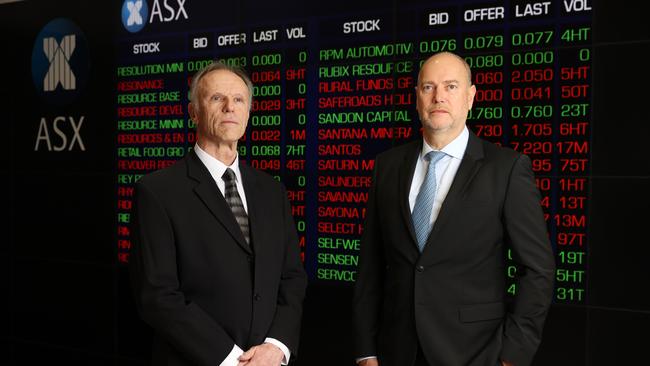Expanded powers: ASX in sights of regulators ASIC and RBA
The ASX will face closer scrutiny from ASIC and the RBA after parliament passed new laws to regulate the market operator, particularly in a crisis.

The corporate regulator is already exploring how to impose stiffer rules on the Australian Securities Exchange just days after new laws governing the country’s stockmarket cleared the Senate.
The financial market infrastructure bill, aimed squarely at the ASX, introduces a string of new powers for the corporate regulator and the Reserve Bank of Australia in the wake of a string of scandals and market outages at the nation’s biggest sharemarket.
The bill introduces a crisis management and resolution regime for clearing and settlement (CS) facilities, following the ASX’s failed replacement of its clearing, settlement, and depositories CHESS system.
The new laws swap some powers over financial markets between ASIC and the RBA, which act as co-regulators for the ASX.
The Australian Securities and Investments Commission said the new laws would ensure a more stable regulatory regime for market operators, better positioning the RBA and ASIC to respond to crises in the sharemarket.
ASIC commissioner Simone Constant said new laws would ensure Australia had a “fit-for-purpose regulatory regime for critical financial market infrastructure”.
“The reforms significantly enhance ASIC’s regulatory toolkit for FMIs, clarify the scope of the Australian licensing regime for overseas markets and CS facilities, and empower us to make rules to promote the fair and effective provision of services by licensed CS facilities,” she said.

Ms Constant said ASIC was reviewing its approach to regulating and supervising financial market infrastructure companies “to ensure that we make the most effective and efficient use of our expanded powers”.
“We will work closely with the RBA and industry to develop and provide information and guidance on the use of our new powers across this multi-year program of change,” she said.
ASIC put out a consultation paper in July on changes to cash equity and clearing settlement services.
The corporate regulator is required to assess whether ASX provides its clearing and settlement in a “fair and effective” way.
The ASX reported its CHESS issuer services business earned it $58.1m last financial year, plus a further $64.5m from cash market clearing.
Settlement also pulled in a further $64.9m over the year.
The Stockbroker and Investment Advisers Association said the new laws were needed, with chief executive Judith Fox noting Australia’s lack of a competitor to ASX made intervention all the more impactful.
“It allows ASIC to set these rules which is creating a competitive outcome environment even if there’s no competitor,” she said.
Ms Fox said the RBA’s crisis management powers were welcome but noted “we always hope they will never have to be utilised”.
The ASX supported the proposed legislation, but warned in its early feedback that some of the proposed regulatory powers “go beyond what is necessary to allow the statutory manager to efficiently carry out their functions and powers in resolving a CS facility or are unnecessary in light of other provisions in the exposure draft legislation”.
But on Thursday the ASX said it was supportive of the reforms, with a spokesman noting the market operator “look forward to engaging with ASIC and RBA as they develop the relevant standards and guidance underpinning the reforms”.
The reforms largely align ASX with other financial market infrastructure regimes.
The government announced its plans to tweak rules around financial markets in December 2022, with the long-awaited bill introduced to parliament in March 2024.
The Council of Financial Regulators made 16 recommendations for reforms of laws governing financial markets in July 2020.

ASX chair Damian Roche recently announced he would step down the market operator at its upcoming AGM, after ASIC took aim at ASX over the CHESS replacement failures alleging it failed to inform investors the project was facing collapse.
Outside candidates Philip Galvin and Bob Caisley have announced they will run for ASX’s board, arguing their expertise in markets makes them good candidates to deal with the latest CHESS replacement program.
Ms Fox said she supported board transition at the ASX but noted the association didn’t “take a position on board candidates”.
“The fact there are two independent candidates standing is a matter for shareholders to decide,” she said.





